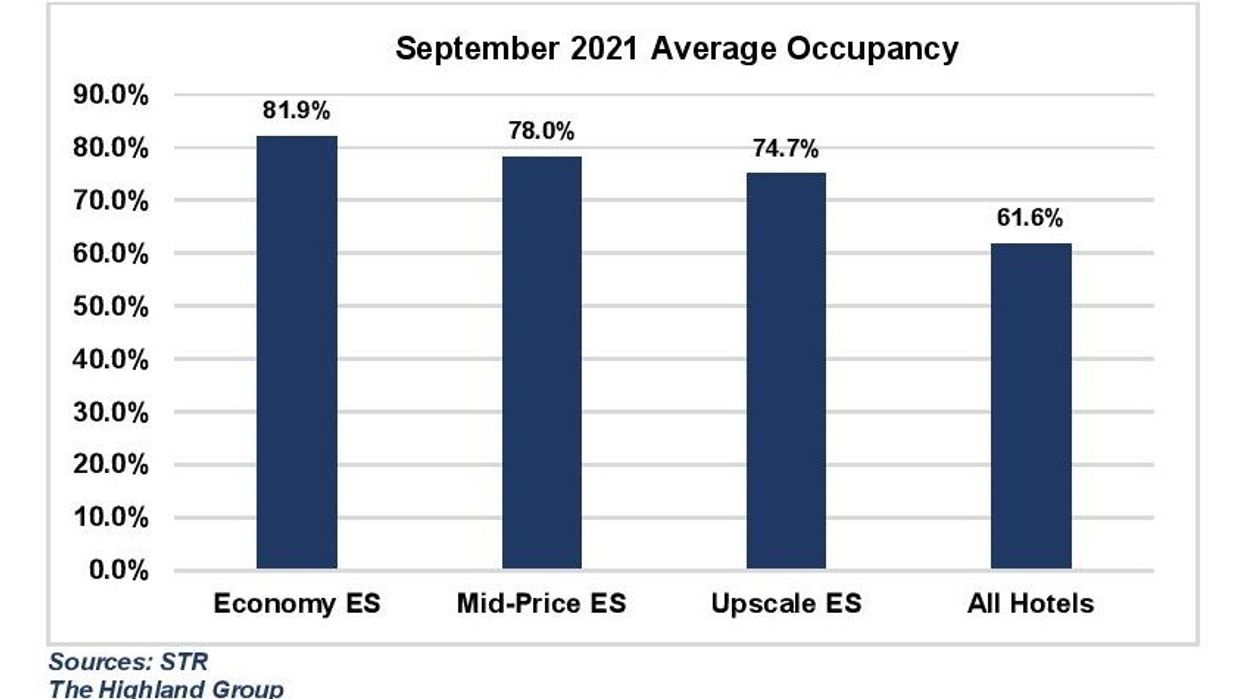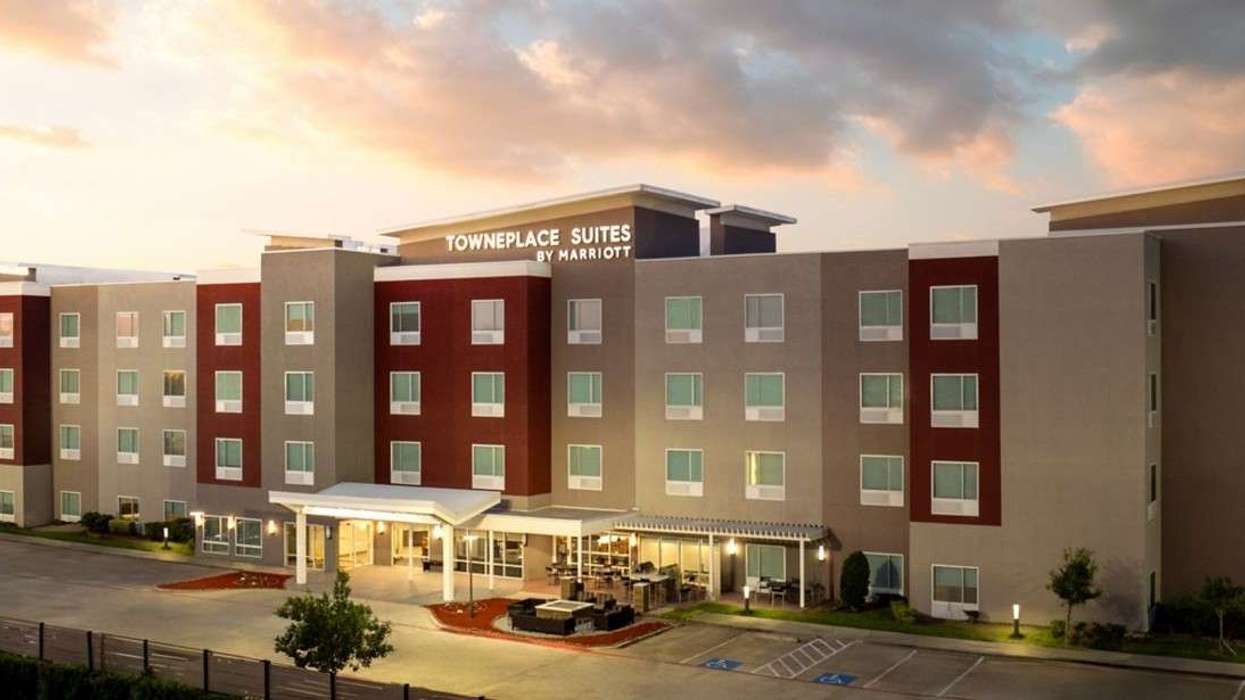MOST ECONOMY AND MID-PRICE extended-stay hotels’ performance in September was down compared to August, according to a report from hotel investment advisors The Highland Group. However, the bottom-up recovery and room supply distribution geographically are hindering the upscale segment’s recovery.
Relative to other classes of hotels, mid-price extended-stay hotels recorded the largest gain in September, the U.S. Extended-Stay Hotels Bulletin: September 2021 report said. Occupancy, ADR and RevPAR indices for upscale extended-stay hotels were about the same in September as in August but the decline in absolute ADR resulted in the segment’s revenue recovery falling below 95 percent.
Economy and mid-price segments both reported about a three-point gain in ADR recovery index in September compared to the month before. The upscale segment’s ADR remained unchanged, the report said.
“The mid-price extended-stay segment’s gains in both ADR and occupancy pushed it slightly ahead of the upscale segment in terms of RevPAR growth. Because the overall hotel industry lost far more RevPAR than extended-stay hotels, its RevPAR growth in September 2021 compared to last year was 85 percent more than extended-stay hotels,” the report added.
“Extended-stay hotels’ occupancy premium above the overall hotel industry widened to 16 points in September and is expected to widen further during the fourth quarter of 2021” said Mark Skinner, partner at The Highland Group.
According to the report, the 4.2 percent increase in extended-stay room supply in September was the lowest monthly gain this year, reflecting the declining uptick to supply growth from reopening hotels closed during the pandemic.
“Upscale extended-stay hotels endured the largest fall in demand and are leading the demand recovery. Extended-stay hotel demand reached 12.93 million room nights in September 2021, up 9 percent during the same period two years ago. The overall hotel industry lost far more revenue than extended-stay hotels in 2020, so it is now recovering revenue relatively quickly,” the report said. “The waning boost from summer travel impacted overall hotel industry occupancy more than extended-stay hotels, widening extended-stay hotel’s occupancy premium to 16 percentage points in September. The premium has stayed above its long-term average for most of the last 18 months.”
STR has reported that all hotel room revenue was up 80 percent in September compared to last year.





